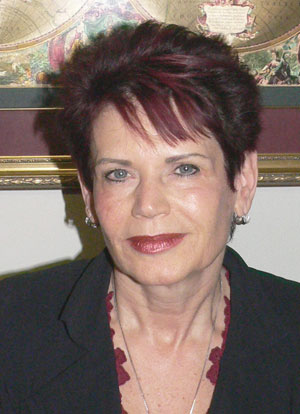A group of Ontario paralegals has filed an application for judicial review in Divisional Court, claiming that sections of the Access to Justice Act dealing with the regulation of paralegals are unconstitutional and contrary to the public interest.

“We’re happy to be regulated; we’ve always believed that we should be regulated” says Judi Simms, president of the Paralegal Society of Canada and one of the applicants. “This is not opposition to regulation. This is merely an opposition to being regulated by a body who regard us as their competitors.”
The act became law in October 2006. It requires that paralegals undergo mandatory training, carry liability insurance, and answer to a public body to investigate complaints. The regulations came into force on May 1, 2007.
The act assigned the task of paralegal regulation to the Law Society of Upper Canada, and a paralegal standing committee - chaired by a paralegal and composed of a non-lawyer majority - was formed to deal with the implementation process.
Parties to the Divisional Court application include North York paralegals Gerald Grupp, on behalf of Persuader Court Agents Inc.; Rivka Labelle, on behalf of Alpha Paralegal Associates Ltd.; and Simms, on behalf of Judi Simms Paralegal and Associates Inc. Simms says they’ll represent themselves and the Paralegal Society of Canada will likely be an intervener.
The attorney general of Ontario and the law society are respondents. The application seeks:
• an order quashing parts of the Access to Justice Act relating to the regulation of paralegals;
• an order forcing the law society to stop all activities involving the regulation of paralegals outlined in the act;
• an order for injunctive relief requiring the law society to hold off on implementation of paralegal regulation until the application is ruled upon;
• an order of mandamus requiring changes to the act that would make the paralegal standing committee the only body regulating paralegals;
• an order allowing paralegals to continue acting on behalf of clients in Family Court, and an order preventing the law society from charging paralegals who are granted permission to act in Family Court.
The application cites as support of the requests ss. 7, 15, and 28 of the Charter. It claims, “Paralegals are the only profession which have not been separately regulated and are proposed to be regulated by an organization regulating their competitors.”
The application says that, in ceding paralegal regulation to the law society, the act is
discriminatory, as “paralegals will not be given the same rights of membership in the law
society to stand for election of its benchers or to vote for those who stand for such election.”
The application claims the act lacks an adequate definition of what it is to practise law, and it cites the 2007 case FCT Insurance Company (First Canadian Title Company Limited) v. Law Society of New Brunswick in alleging that the law society “has not administered the Access to Justice Act in the public interest.”
LSUC released a statement saying, “The law society is confident in the Ontario government’s authority to enact this legislation.”
Valerie Hopper, a spokeswoman for the attorney general, tells Law Times in a prepared comment, “We have been served with a notice of an application for judicial review challenging the constitutionality of the Law Society of Upper Canada regulating paralegals under the Law Society Act. It is our position that in order to protect the public interest it is appropriate for the law society to regulate paralegals just as they regulate lawyers.”
Simms says the application aims to get paralegals “a better deal . . . The law society has done a really good job here with the regulation. I think they’ve worked really hard and they’ve given people a lot of opportunities.”
But she says, “We want to be self-regulated. We don’t mind having guidance from the law society, but basically we want to control our own destiny. If we’re part of the law society, we’re a small minority; we don’t really have a voice on how things are being done.”
Simms says paralegals are “outnumbered” at Convocation, where only two of 40 benchers represent them. She adds paralegals want members of the standing committee, who were appointed by the attorney general, to be elected.
“We didn’t get to elect those people and we don’t feel that they really are representative of some of the things that we would like to see. We know that eventually there are going to be elections but we really felt that we should have had a say in the appointments.”
Paralegals can play an important role in the administration of justice, in light of the high cost of legal representation, says Simms.
“What we’re trying to say is paralegals just want a niche for themselves. They don’t want to take work away from lawyers,” says Simms.

 “We’re happy to be regulated; we’ve always believed that we should be regulated” says Judi Simms, president of the Paralegal Society of Canada and one of the applicants. “This is not opposition to regulation. This is merely an opposition to being regulated by a body who regard us as their competitors.”
“We’re happy to be regulated; we’ve always believed that we should be regulated” says Judi Simms, president of the Paralegal Society of Canada and one of the applicants. “This is not opposition to regulation. This is merely an opposition to being regulated by a body who regard us as their competitors.”